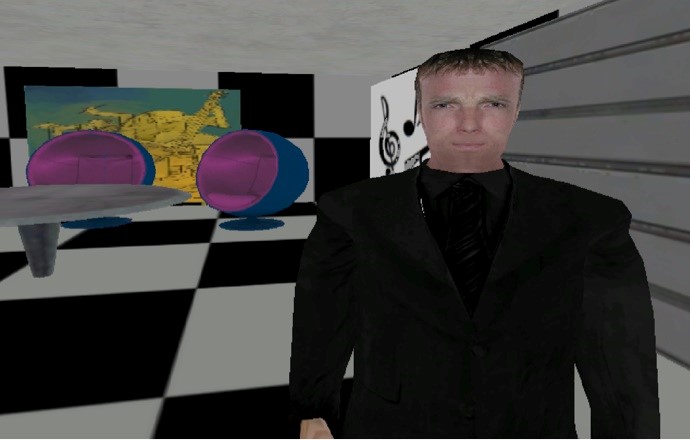By Noah Pflueger-Peters. Modern life is increasingly dominated by the virtual world. Whether it’s through the Internet, video games, social media, or virtual reality, much of our day now takes place on or through digital technology. So it’s important to learn about how this technology affects our lives.
Meet the UC Davis Virtual Interaction and Communication Technology group, or VICTR Lab, where researchers are answering these questions. Led by Associate Professor Jorge Peña, the VICTR Lab studies communication technology—how people interact with digital technology and how these interactions affect real-world behavior.
The lab is particularly interested in the persuasive effects of virtual experiences. Using Oculus Rift headsets, video games, and mobile phone apps, Peña and his team build and then place participants in virtual environments. The environments vary, but he and his team have used both neutral, outdoor settings, and settings modeled after places on the UC Davis campus, such as the Shields Library. They hope to see if a common UC Davis identity affects the way people interact with each other.
The most common form of research done at the lab is avatar manipulation. Participants are asked to create an avatar and are given instructions to make it look like or unlike themselves, depending on the experiment. They then have a conversation in one of these virtual environments with another avatar controlled by the team. This allows them to study how behavior varies depending on what the avatars and settings look like. They have looked at how race and ethnicity, gender, body size, and the color of the avatar’s clothes have affected responses.
Avatar manipulation in virtual reality is only one type of groundbreaking research at the VICTR Lab. Doctoral researcher Subuhi Khan takes an interdisciplinary approach, combining health communication and communication technology to develop a mobile app that helps people fight depression. One of her studies found that mental health-oriented video games are a viable treatment for depression, especially when they are combined with persuasive messages that tell people they have the power to control the illness.
The lab also studies more traditional video games, including first-person shooters like Call of Duty. Using a first-person shooter game that was specially designed by Chris Burrows and Hart Blanton at Texas A&M University, the team placed anti-DUI advertisements around the map to study if and how participants process them while playing the game. The findings will be published in a forthcoming paper.
Whether it’s virtual reality, video games, or mobile apps, the VICTR Lab continues to break ground in communication technology. “UC Davis is stepping up in terms of looking at the questions of how our detailed surroundings, this brave new world in which we live in, will affect us,” said Peña.
Read more about the VICTR Lab and its research.
 Noah Pflueger-Peters is a writing intern at the UC Davis College of Letters and Sciences. He graduated from UC Davis with a bachelor’s degree in English in June 2017.
Noah Pflueger-Peters is a writing intern at the UC Davis College of Letters and Sciences. He graduated from UC Davis with a bachelor’s degree in English in June 2017.


